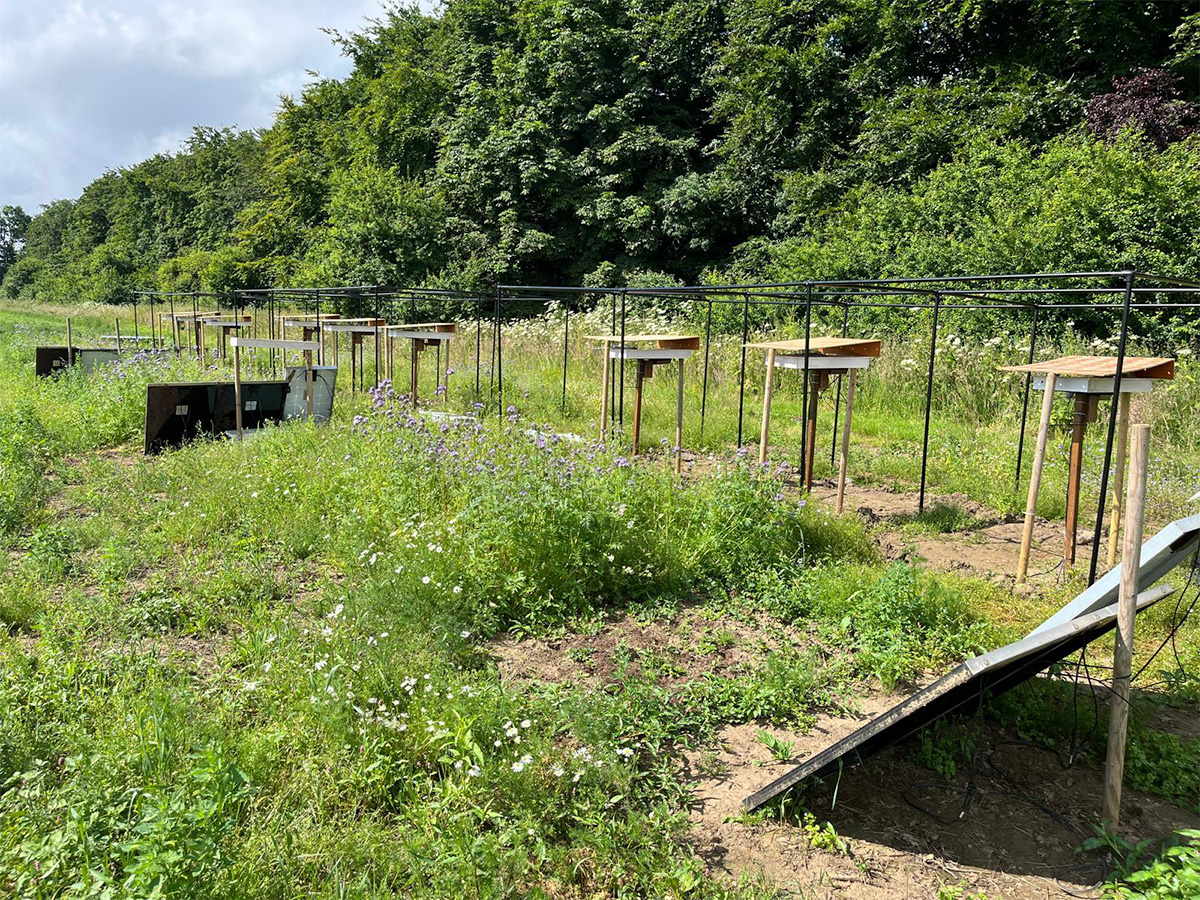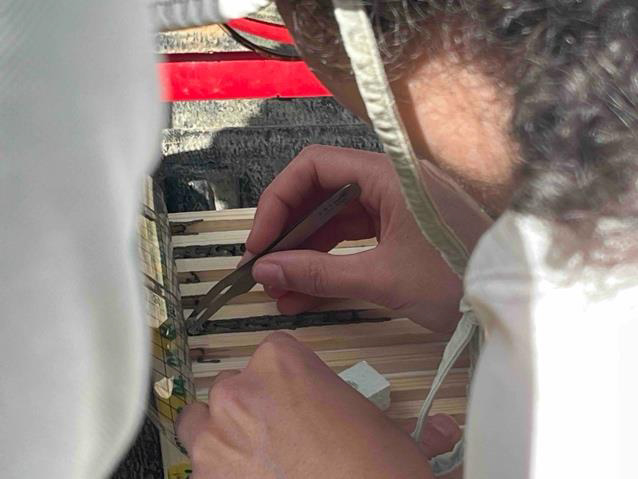Project summary
The challenge
We need to understand how climate change affects the nutritional health of wild bees and their pollination preferences, which are crucial for food security.
The approach
Our project measures and models how nutrition and temperature affect two key UK pollinators. We will be studying their growth, metabolism, and survival.
The impact
We will model how bumblebees and mason bees cope with climate heating and predict shifts in their flower preferences.
The Challenge
Our BBSRC-funded project is investigating the nutritional health of wild bees in a changing climate.
Animals’ dietary needs and preferences may change in a warmer world. Animals select from a range of foods to get the nutrient balance they need. But warmer temperatures may change this ideal balance.
We are investigating how this problem may affect bees, which are responsible for pollinating many of our crops. Crops provide bees with pollen that is very nutritionally different, and bees need to select a mix that is right for the conditions. The climate is heating up, so the crops bees choose to visit today may not be the same tomorrow.
We need to understand how changing climates will affect bee preferences and pollination patterns – unfortunately we still have limited understanding of bees’ dietary requirements, even in today’s climate.
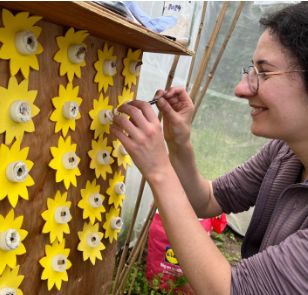
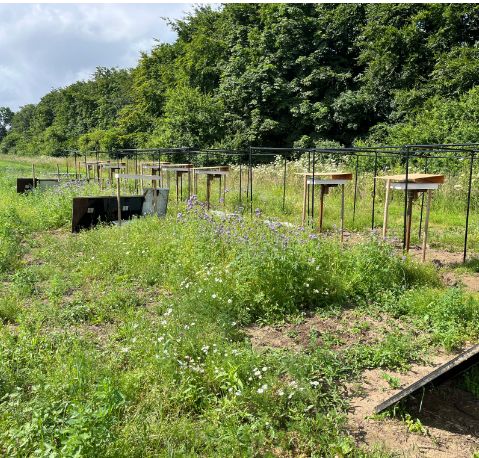
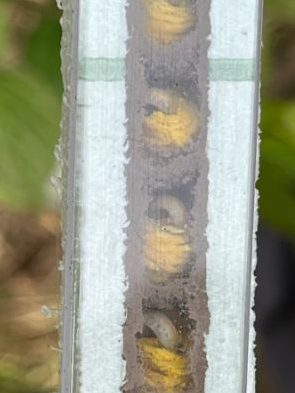
The Approach
We are looking at two UK bee species with different lifestyles.
- Bombus terrestrisBumblebees
- Osmia bicornisRed mason bees
Bumblebees pollinate soft fruit, beans and tomatoes. They have workers that feed larvae until adulthood and keep the nest warm in winter and cool in summer.
Red mason bees pollinate apples and other fruit. Mother bees work alone, provide larvae with a single pollen ball, and cannot control nest temperature.
In both species we are gathering detailed data on how nutrition and temperature affect bee health, establishing the best diet at a range of temperatures. Then, we will test whether adults can maintain optimal diets for larvae when the temperature changes.
Key findings from the discovery work
- Bees, managed and wild, are important globally for their role in pollination, which is central to natural and agricultural ecosystems.
- Unfortunately, bees are declining, partly due to poor nutrition. Despite this, we do not yet understand how bees deal with variable quality food in patchy modern landscapes.
- We know particularly little about larval nutrition, where all growth occurs.
The Impact
Our work will fill a gap in our knowledge about how bees with different lifestyles cope with climate heating. With this knowledge, we can predict whether bees are likely to abandon particular crops in a hotter world, as they change their preferences, and design custom wildflower mixes to promote specific pollinators.
Once we understand bees’ dietary needs, and how these needs might change in warmer climates, we can design appropriate, future-proof mitigation/intervention measures.
Dr James Gilbert
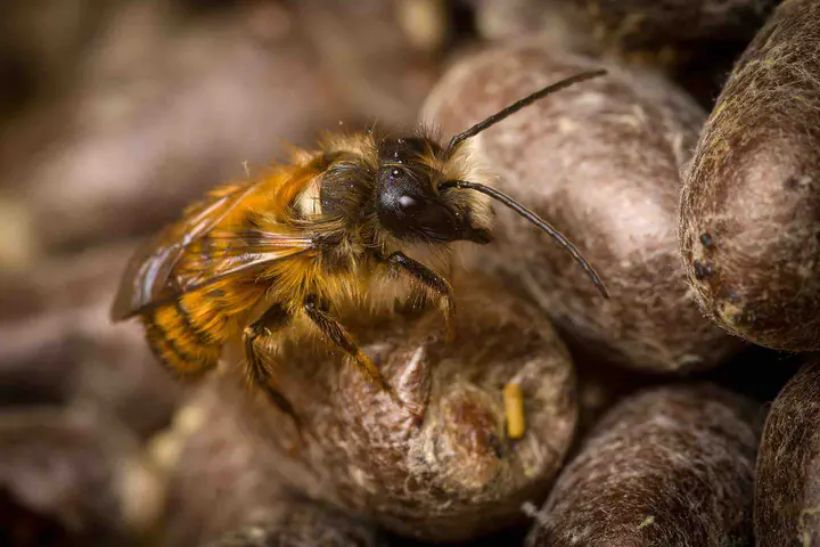
Latest updates
View all project updates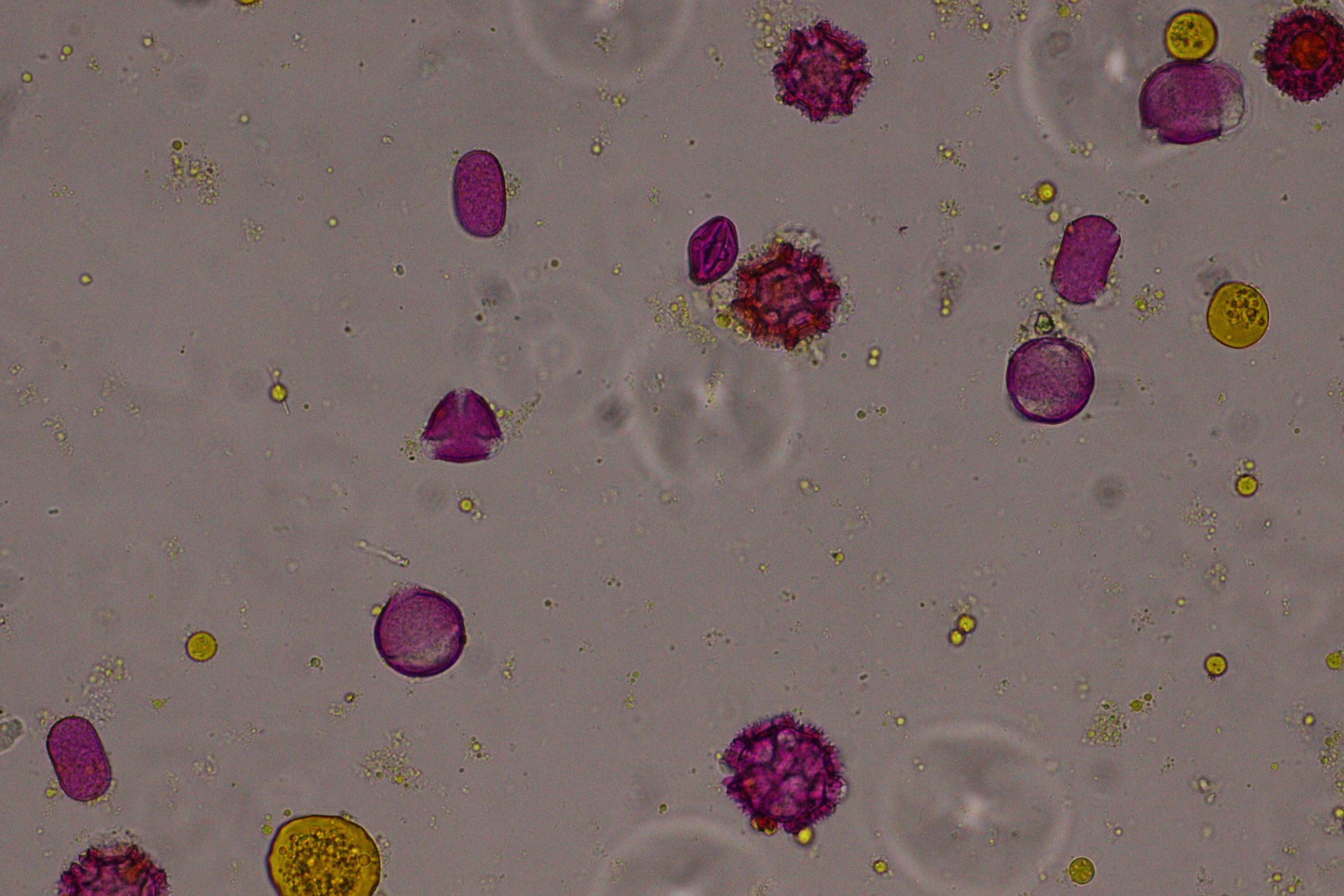
Influence of temperature on the type of pollen collected by red mason bees: initial findings
During a field experiment in summer 2024, we collected samples from pollen loads made by red mason bees in nests experiencing different temperatures: ambient temperature, ambient + 4°C and ambient + 8°C. Have a look at the following pages if you want to learn more about the field experiment (here and here) and discover other […]
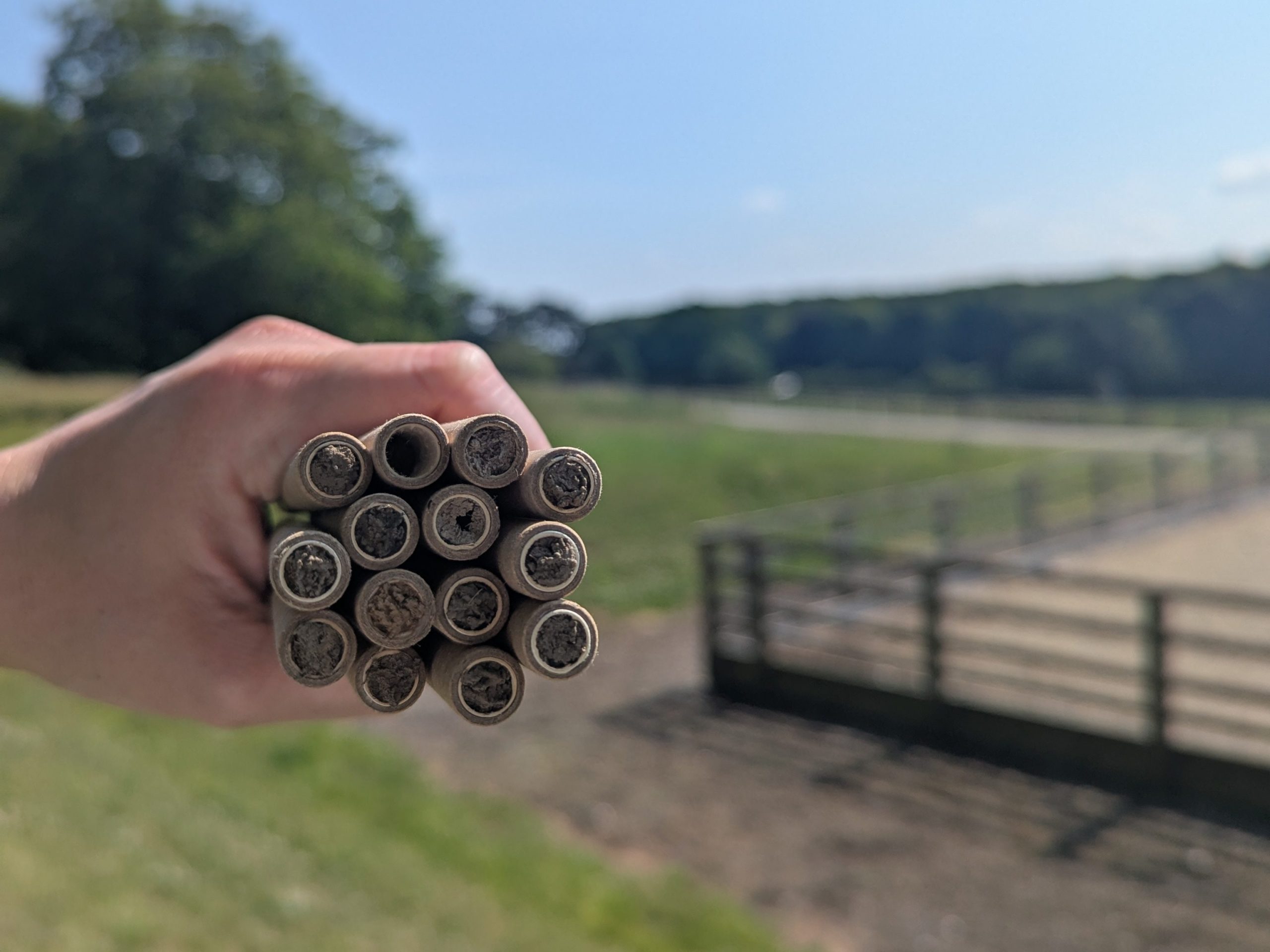
Summer Success!
Summer is the busiest point in the life cycle for our red mason bees. After emerging and mating in the spring, the mothers spend the summer collecting pollen for their young. They compress this pollen into balls inside tubes, lay their egg on top then seal it away with a wall of mud. She then […]

The bee lab at Ento25 – Exploring insect science in Glasgow
In September, our lab was represented at the Royal Entomological Society’s Annual Conference, Ento25, held in Glasgow. Researchers from around the UK and the rest of the world came together to discuss all things insects, from ecology and evolution to conservation and climate change. Matthew presented his talk titled “Do mother Bees Provisioning Young Tailor […]
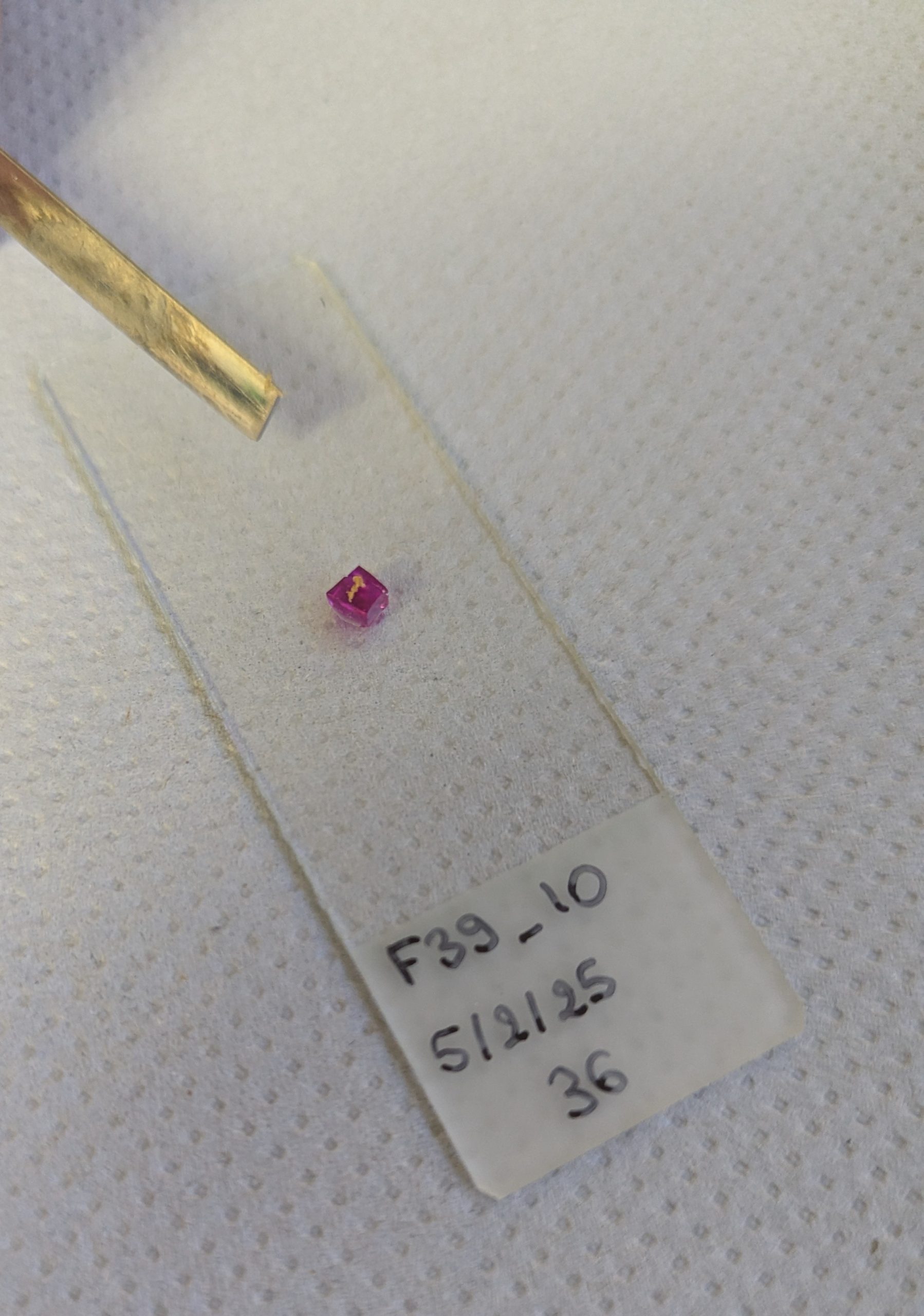
Pollen: under the magnifying glass
It was time for pollen samples collected during the summer 2024 to be analysed! Our aim is to identify which pollen species the bees collected to make the pollen loads for their larvae. For this, all you need is some pink glycerine jelly, a microscope… and a lot of patience! Let’s break down the process. […]
- $i
- $i
- $i
- $i
- $i
- $i
- $i
- $i
- $i
- $i
- $i
- $i
- $i
- $i
- $i






